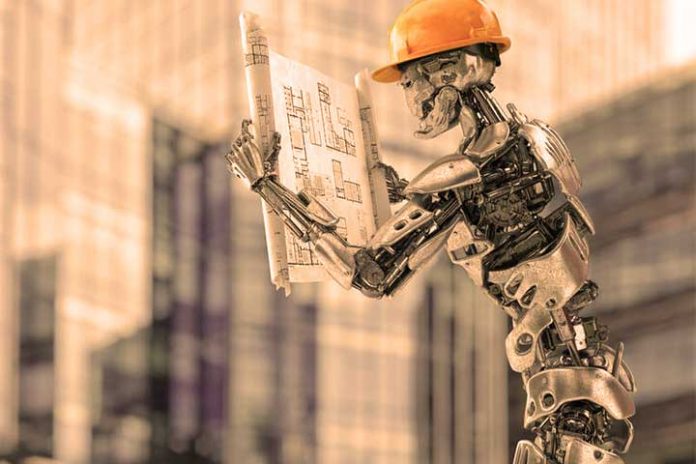AI has received a mixed response in recent years, ranging from predictions of doom as AI could spiral outside of human control, to predictions of virtual utopia, as humans leverage the incredible potential of AI to assist in building a perfect society. Like with any technology, it can be used for both great good and for misuse. One thing is certain; however, AI has come a long way and its impact is being felt in many industries now, not least within the construction sector.
AI can be defined as a broad area of computer science dedicated to building smart machines that are able to perform tasks that usually requires human intelligence. “During World War II, the British mathematician Alan Turing posed a simple question: “Can machines think?” noted Jamie Johnson, CEO of FJP Investment. “Turing’s subsequent 1950 paper titled “Computing machinery and Intelligence,” along with the Turing Test, can be said to set the tone for the vision of pursing the dream of artificial intelligence.”
The more obvious uses of AI can be seen with things like drones, 3-D printing, and construction robotics, but perhaps not so obvious use of AI includes design work, project management, and human resources with recruitment.
To ensure that AI is developed and used as responsibly as possible, four basic guiding principles and rules have been developed with the aim of reducing unintended consequences from the misuse of this incredibly powerful technology.
- The machine must be transparent in its actions and intensions, it must account for itself.
- AI must buy driven by the goal of benefiting humanity.
- AI will be as autonomous as possible.
- It must be guided by moral codes.
Overall, construction projects that use AI can run efficiently and effectively. Specifically, the following benefits can be highlighted where AI has had a positive impact on construction. The influence from AI can be discerned not only with a project’s efficiency and accuracy, but also extends to a company’s leadership and corporate culture. AI perform useful functions and tasks, but they can also help humans perform their tasks better.
Design work
AI can help with improving design work by changing human design parameters and providing new designs that were previously inconceivable. By analyzing many blueprints as base material, it can then create its own design concepts which humans would unlikely have thought of. Improved room layouts, for example, can be designed by AI to enhance natural air flow, something that is necessary for energy saving concepts such as “passive houses.” If warm air can better circulate around a building this would improve living conditions of occupants and reduce energy usage.
AI is also capable of creating the best design possible within a set of narrowly defined parameters, such as budgetary constraints, project timeline, or limited dimensions. AI tools can be sued for things like modifying construction plans to fit the constraints of a site or optimise the pattern arrangement of glass panels to save on cost.
Autonomous project management
Projects can be streamlined with the use of AI which is especially useful for very large and complicated construction projects. AI can create construction schedules that reduces costs and minimises risk. One AI tool called ALICE can assess bids, weigh up competing project plans and monitor progress to ensure the project keeps scheduling, saving time and money.
The Building Information Modeling (BIM) AI software can create real time 3-D layouts of a building from 2-D blueprints and allow for 24-hour input from team members making suggestions or changes. It can also provide suggestions for changes that may not be in the plan. The BIM’s uses don’t end when construction has finished, it can also monitor the project after completion and make predictive maintenance recommendations.
Optimising personnel
Recruitment is a big deal and requires careful attention to many factors. Ensuring that the right people with the right skills are placed in the right position can mean the difference between success and failure. This is where AI can help with analysing data from applicants and assess if the applicant’s skills and experience is best suited for what the project requires, based on historical project data.
With existing staff, AI can retain and analyse their personnel and training records and determine if that employee has any management potential, or if they may be inclined to leave the company soon requiring replacing. Soon, it seems, AI will know us better than ourselves.
Improved safety
AI can analyse historical data to make recommendations on safety protocols for a specific site and project. This AI tool can even come in the form of wearables that improve site safety when developing off plan such as smart boots, smart glasses, and proximity sensors worn on the wrist that can warn of potential collisions.
With AI help in analysing blueprint layouts, it can improve the safety design of buildings by designing better safety features such as the optimal position of safety exits and warning lights, CCTV monitoring equipment, and disabled entrances.
Finally, AI can analyse the project as a whole and make predictive assessment on safety and where special attention should be placed.
Also Read: Artificial Intelligence Will Create More Jobs Than It Eliminates


